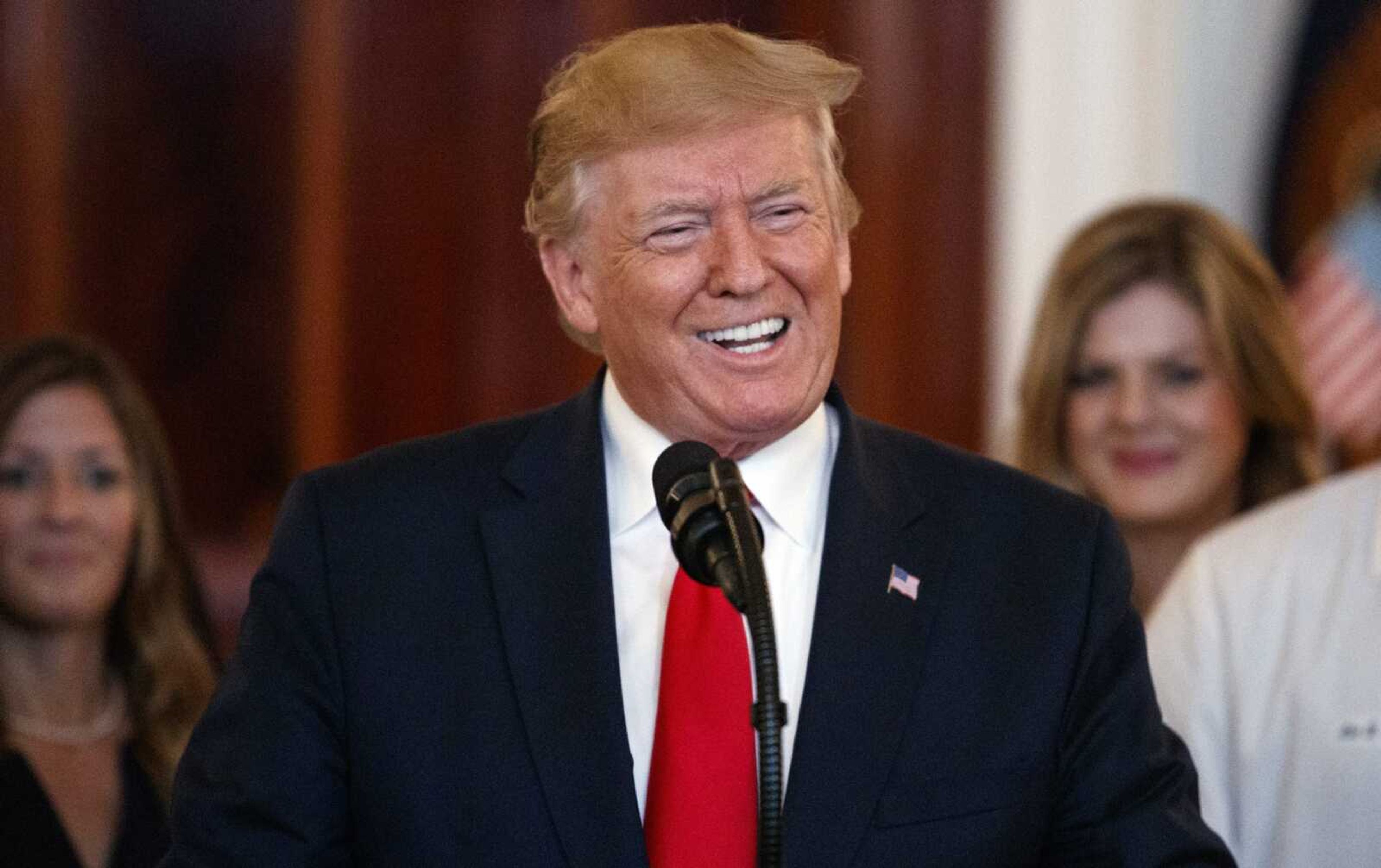Trump-Xi meeting: A truce in trade war?
WASHINGTON -- American businesses are bracing for a painful escalation in President Donald Trump's trade war with China. Yet they might just get a reprieve. If history repeats itself -- and most analysts are betting it will -- Trump and President Xi Jinping will agree to some kind of cease-fire when they meet late this week at a Group of 20 international summit in Osaka, Japan...
WASHINGTON -- American businesses are bracing for a painful escalation in President Donald Trump's trade war with China.
Yet they might just get a reprieve.
If history repeats itself -- and most analysts are betting it will -- Trump and President Xi Jinping will agree to some kind of cease-fire when they meet late this week at a Group of 20 international summit in Osaka, Japan.
Indeed, a senior administration official sought to downplay expectations Tuesday by suggesting the primary goal for the Trump-Xi meeting is simply an agreement to restart negotiations. The official said the hard work of finalizing the complex details of any broad new accord would come later, when negotiating teams for the two sides meet.
Under the cease-fire scenario, the two sides' existing tariffs and counter-tariffs on many of each other's goods would remain in place. But no additional import taxes would take effect. This would buy time for U.S. and Chinese officials to restart talks after they stalled last month.
The last time Trump and Xi met -- in early December at a G-20 gathering in Buenos Aires, Argentina -- they called a truce. That cease-fire injected some new momentum into the talks between the world's two biggest economies.
The stakes are even higher now. Trump has ordered U.S. trade representative Robert Lighthizer to prepare import taxes on $300 billion in Chinese goods -- which would extend U.S. tariffs to everything China ships to the United States. The administration has already imposed 25% tariffs on $250 billion in Chinese imports. Beijing has retaliated by taxing $110 billion in goods from the United States.
"What I'm hoping is that two leaders will recommit to fully engage on the trade talks," said Myron Brilliant, head of international affairs at the U.S. Chamber of Commerce, a traditional Republican ally sharply critical of Trump's use of tariffs. "There's too much at stake in the bilateral relationship for the two governments not to try to work out the final parts of the trade agreement."
The administration accuses Beijing of using predatory tactics in a push to give Chinese companies an unfair competitive edge in such advanced technologies as artificial intelligence and driverless vehicles. In particular, Trump officials allege Beijing forces American companies to hand over technology in exchange for access to China's market, unfairly subsidizes Chinese tech companies and sometimes resorts to outright cyber-theft to pilfer U.S. trade secrets.
Beijing denies the charges and contends the administration is simply trying to suppress a rising competitor in global trade.
If Trump did expand his tariffs to the final $300 billion in Chinese imports, it would amount to a significant escalation in the U.S.-China trade war. The earlier rounds of U.S. tariffs mostly spared consumers by targeting industrial goods, not everyday staples. Higher taxes on the rest of Chinese imports -- from alarm clocks and baby carriages to contact lenses to Christmas ornaments -- are "finally going to get into the average guy's pocket. It's all been hidden up to now," said Jeff Moon, a former China hand with the U.S. State Department and the trade representative who runs the China Moon Strategies LLC consultancy.
When Lighthizer's office ran seven days of hearings this month on the expanded tariffs, the message from American businesses was fairly uniform: Don't do it. Indeed, economists warn additional higher tariffs -- effectively, a tax increase on consumers and companies -- would hurt a U.S. economy appearing to be weakening.
Consider Celestron, a telescopes and optics company with 80 employees at its offices in Torrance, California, which moved most of its manufacturing to China years ago. Trump's earlier tariffs hit only about 10% of what Celestron brings in from China. The next round would cover the remaining 90% -- and it might force the company to lay off manufacturing and assembly workers it still employs in California.
"These skilled positions will be imperiled by the proposed tariffs, because the parts and equipment these workers need to do their jobs are sourced in China," Celestron said in a filing with the government.
Until last month, the Trump administration and Beijing seemed to be edging toward an agreement to end the trade war. Then Trump officials accused China of backpedaling on commitments it had made in earlier negotiations. The talks stopped. Trump raised tariffs on $200 billion in Chinese imports from 10% to 25% -- the sanctions he had suspended after he met with Xi in December -- and threatened to tax the $300 billion in Chinese goods he hadn't already hit.
Connect with the Southeast Missourian Newsroom:
For corrections to this story or other insights for the editor, click here. To submit a letter to the editor, click here. To learn about the Southeast Missourian’s AI Policy, click here.








